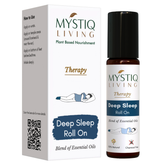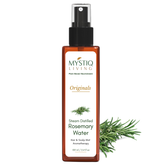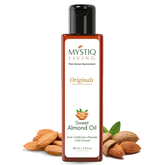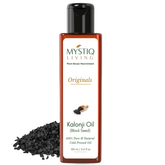Soap Base: A Comprehensive Guide to Choosing and Using the Perfect Soap Base for Your Needs
What is a Soap Base?
When it comes to making your own soap, using a high-quality soap base is essential. A soap base, also known as a melt-and-pour soap base, is a premade soap that has already undergone the saponification process. It serves as the foundation for creating handmade soaps without the need for extensive soap-making techniques.
The Benefits of Using a Soap Base
Using a soap base offers numerous benefits for both experienced soap makers and beginners. Here are a few advantages:
Convenience: Soap bases are pre-made, saving you time and effort in the soap-making process.
Safety: The saponification process in soap bases eliminates the need for handling lye, a potentially dangerous substance used in traditional soap making.
Versatility: Soap bases come in various types, allowing you to choose the one that best suits your needs and preferences.
Customizability: You can add fragrances, colors, and other additives to personalize your soap creations.
Accessibility: Soap bases are widely available, making them easily accessible to anyone interested in soap making.
Types of Soap Bases
Soap bases come in different formulations, each with its unique characteristics and benefits. Let's explore some of the most popular types of soap bases:
1. Glycerin Soap Base
Glycerin soap bases are transparent and have a high glycerin content. They are known for their excellent moisturizing properties and gentle cleansing abilities. Glycerin soap bases are suitable for all skin types and can be easily customized with colorants, fragrances, and exfoliants.
2. Shea Butter Soap Base
Shea butter soap bases are enriched with nourishing shea butter, renowned for its moisturizing and soothing effects on the skin. These bases produce a creamy lather and are particularly beneficial for dry or sensitive skin. Shea butter soap bases can be enhanced with essential oils, botanical extracts, and other additives to create a luxurious bathing experience.
3. Goat Milk Soap Base
Goat milk soap bases contain real goat milk, which is known for its gentle and hydrating properties. These bases are ideal for individuals with sensitive or irritated skin. Goat milk soap bases can be combined with natural colorants, such as herbs or clays, and scented with essential oils to create mild and soothing soaps.
4. Olive Oil Soap Base
Olive oil soap bases are crafted with high-quality olive oil, a rich source of antioxidants and moisturizing properties. These bases produce a creamy lather and offer gentle cleansing for all skin types. Olive oil soap bases can be customized with fragrances, colors, and exfoliants to create unique and nourishing soaps.

Pure Essential Oils
Essential oils at Mystiq Living are original series of essential oils, extracted from steam distillation of pure and fresh ingredients. Use these essential oils for soap base
How to Choose the Right Soap Base
Selecting the perfect soap base for your needs requires careful consideration of several factors. Here are some key points to keep in mind:
1. Skin Type and Sensitivity
Consider your skin type and any specific sensitivities or allergies you may have. For dry or sensitive skin, opt for gentle and moisturizing soap bases like shea butter or goat milk. If you have oily or acne-prone skin, a glycerin or olive oil soap base may be more suitable.
2. Desired Properties and Effects
Think about the specific properties and effects you want your soap to have. If you're looking for a hydrating soap, go for bases enriched with ingredients like shea butter or olive oil. For exfoliation, consider a soap base with added exfoliants like crushed herbs or seeds.
3. Scent and Color Options
Soap bases can be enhanced with a wide range of fragrances and colors. Consider the scents and colors that align with your preferences or the theme of your soap creations. Ensure that any fragrance oils or colorants used are skin-safe and suitable for soap making.
4. Packaging and Presentation
If you plan to sell or gift your handmade soaps, consider the packaging and presentation options. Some soap bases come in different shapes or sizes, allowing for more creative designs. Choose a soap base that aligns with your desired final presentation and packaging requirements.
How to Make Soap Using a Soap Base
Creating your own soap using a soap base is a straightforward process. Follow these basic steps to get started:
1. Gather Your Ingredients and Equipment
Collect all the necessary ingredients, including your chosen soap base, fragrances, colorants, and any additional additives. Ensure you have the appropriate equipment such as a heat-resistant container, a stirring utensil, and soap molds.
2. Melt the Soap Base
Cut the soap base into smaller pieces and place them in a microwave-safe or double boiler container. Heat the soap base gradually, stirring occasionally, until it melts completely. Take care not to overheat the base to avoid scorching or burning.
3. Add Fragrance, Color, and Other Additives
Once the soap base has melted, remove it from the heat source and let it cool slightly. Add your chosen fragrance oils, colorants, and any other desired additives, such as exfoliants or botanical extracts. Stir well to ensure even distribution.
4. Pour into Molds and Allow to Set
Carefully pour the melted soap base into your chosen soap molds. Gently tap the molds on a flat surface to release any air bubbles. Allow the soap to cool and harden for the recommended duration specified by the soap base manufacturer.
5. Unmolding and Curing
After the soap has fully set, gently remove it from the molds. Place the freshly made soaps on a drying rack or a well-ventilated area to cure. Curing allows excess moisture to evaporate, resulting in a harder and longer-lasting soap. Follow the specific curing instructions provided by the soap base manufacturer.
Common FAQs About Soap Bases
1. What is the shelf life of a soap base?
Soap bases typically have a shelf life of 1 to 2 years if stored properly in a cool, dry place. It's important to check the packaging or consult the manufacturer for specific shelf life information.
2. Can I add essential oils to a soap base?
Yes, you can add essential oils to a soap base to add fragrance and potential therapeutic benefits. However, it's important to use skin-safe essential oils and follow recommended usage guidelines to avoid irritation or sensitization.
3. Is a soap base suitable for sensitive skin?
Soap bases like shea butter or goat milk are often suitable for sensitive skin due to their gentle and nourishing properties. However, individual sensitivities may vary, so it's always advisable to conduct a patch test before using a new soap base.
4. Can I mix different types of soap bases?
Yes, you can mix different types of soap bases to create unique blends and combinations. Experimenting with various soap bases can result in interesting textures, scents, and properties in your handmade soaps.
5. How do I store leftover soap base?
To store leftover soap base, wrap it tightly in plastic wrap or place it in an airtight container to prevent moisture loss and exposure to air. Store it in a cool, dry place away from direct sunlight.
6. Which soap base is best?
The best soap base depends on individual preferences and skin type. Glycerin soap is gentle and moisturizing, while olive oil soap is mild and nourishing. Coconut oil soap creates a rich lather, and shea butter soap is highly moisturizing. Goat milk and aloe vera soaps offer soothing and hydrating properties.
7. Is coconut oil a soap base?
Yes, coconut oil can be used as a soap base. It is commonly used in soap-making due to its cleansing properties and ability to create a rich lather.
Conclusion
Choosing the right soap base is crucial for creating high-quality handmade soaps. By considering your specific needs, preferences, and the characteristics of different soap bases, you can create personalized soaps that cater to your skin type and desired effects. Whether you opt for a glycerin soap base, shea butter soap base, goat milk soap base, or olive oil soap base, the possibilities for creativity and customization are endless. Enjoy the process of soap making and revel in the satisfaction of using soaps crafted with care and expertise.










Leave a comment
Please note, comments need to be approved before they are published.